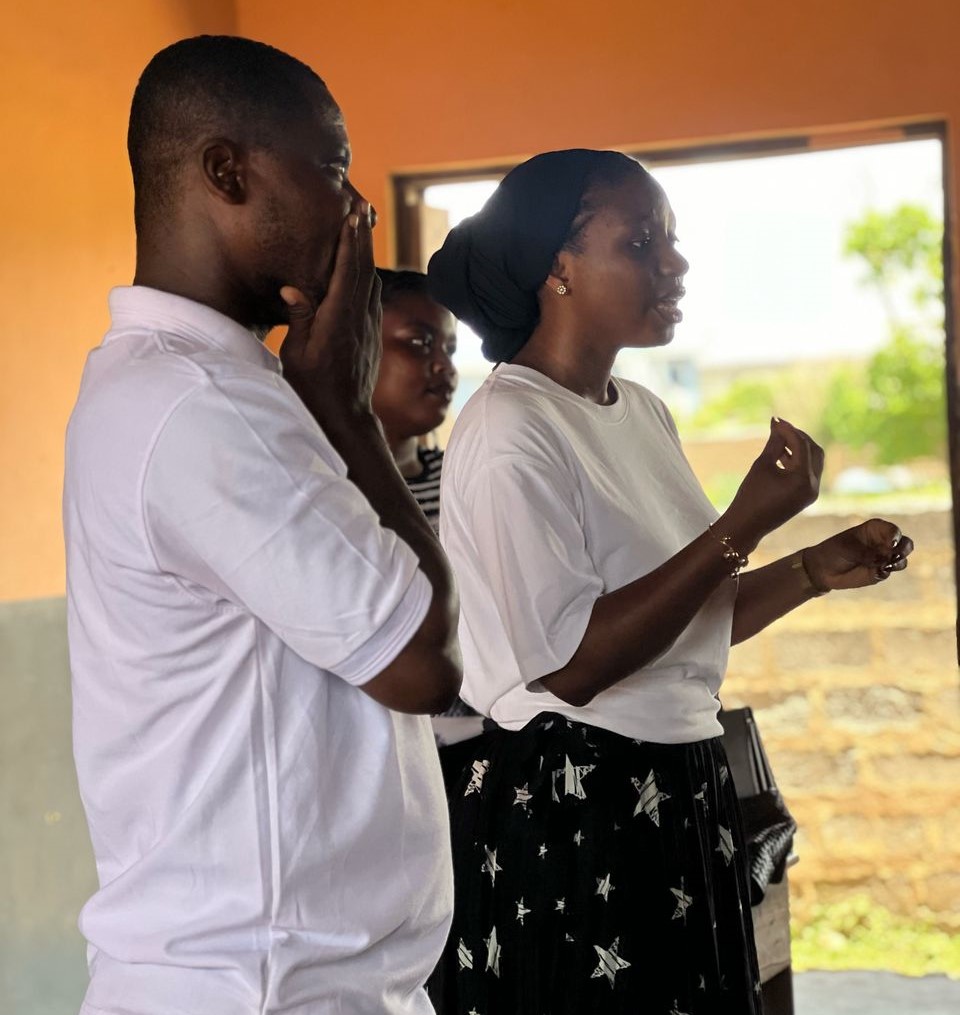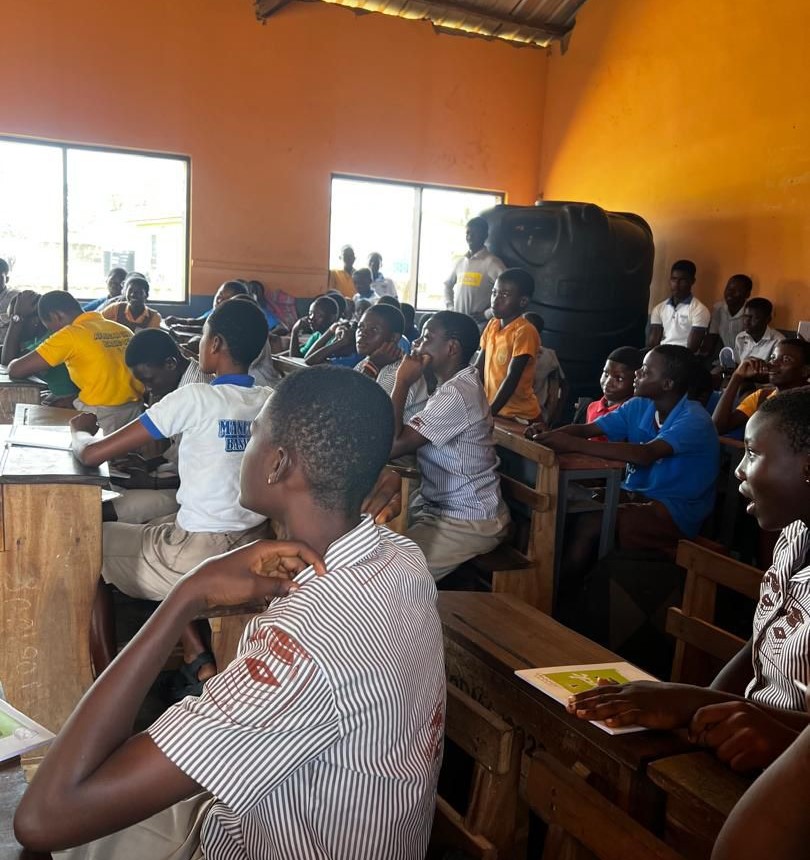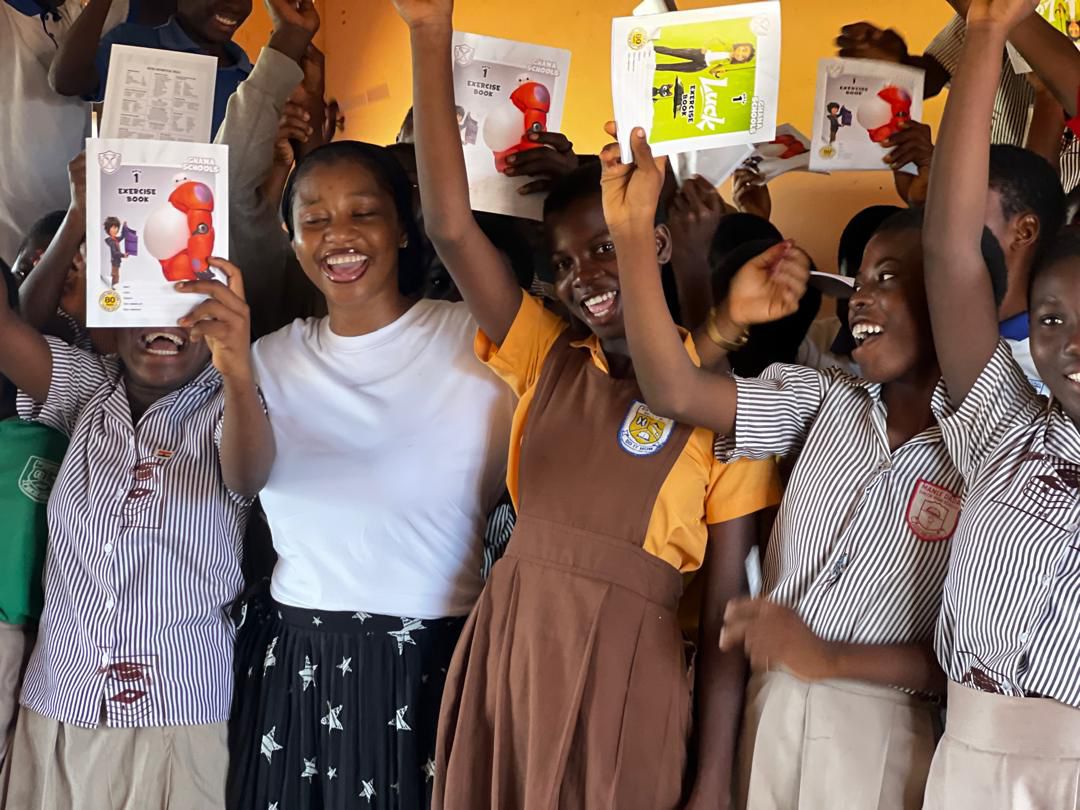Our Campaign to End Menstrual Stigma in Ghana
In communities across Ghana, thousands of adolescent girls face a quiet struggle, one that affects their education, their confidence, and their health. It’s not war or poverty. It’s their period.
For far too long, menstruation has been treated like a taboo subject. Whispers in the classroom, shame at home, and silence in public health discussions have left young girls unprepared and unsupported. That’s why Nuvanta Foundation has launched the Period Hygiene Awareness Campaign, a powerful initiative aimed at transforming how menstruation is discussed, understood, and managed in our communities.
“Embrace the Conversation Beyond the Flow”
The campaign’s slogan speaks volumes. Menstruation is not just about monthly bleeding—it’s about education, dignity, and empowerment. Nuvanta Foundation’s mission is simple but bold: to break the silence around periods and equip girls aged 12–18 with the knowledge, resources, and confidence they need to thrive during menstruation and beyond.
The campaign targets schools in the Greater Accra Region, beginning with Papao Presbyterian Community Basic School and Haatso Calvary Presbyterian Basic School. In these schools, many girls rely on unhygienic methods such as tissues, rags, or old cloth due to a lack of access to safe sanitary products. Worse still, 62% of girls surveyed in Haatso were unaware of critical aspects of menstrual hygiene.
Why Menstrual Hygiene Matters
The consequences of poor menstrual hygiene are not just physical—they are deeply social and emotional. Girls miss school during their periods out of fear, shame, or discomfort. Some suffer in silence from infections or pain, unable to talk about their experience even with family. And in extreme cases, myths about menstruation lead to discrimination, isolation, or even abuse.
What the Campaign Aims to Achieve
The goal is ambitious: to double menstrual hygiene awareness among schoolgirls from 38% to at least 76% in just six months.
To achieve this, Nuvanta is combining education, community engagement, and resource distribution:
Measuring the Impact
Nuvanta Foundation is not just hoping for change, it’s tracking it. Through pre- and post-campaign surveys, the organization is measuring increases in awareness, improvements in hygiene practices, and shifts in attitudes. Feedback from girls, parents, and teachers will shape future campaigns and scale the program to other schools.
Evaluation Methods
Success MetricsSuccess will be measured through the increase in awareness levels, participation rates, and feedback collected from the participants regarding their understanding of menstrual hygiene.
Post-Campaign SurveysAfter the campaign, we will conduct post-campaign surveys to assess changes in awareness and understanding of menstrual hygiene among schoolgirls, measuring our campaign’s impact effectively and refining future initiatives.
How You Can Get Involved
This is not just Nuvanta’s mission—it’s a community movement. Here’s how you can help:- Volunteer – Join a workshop, share your skills, or mentor a young girl.
- Sponsor a Hygiene Kit – Help sponsor a girl with sanitary supplies for three months.
- Partner With Us – If you're a school, organization, or health provider, collaborate on expanding the campaign.
- Spread the Word – Share our message online and help normalize conversations around periods.
These moments from our past sessions speak volumes.
It was an incredibly educative, interactive, and emotional session focused on menstrual health, confidence, and breaking the silence around periods. Together, we’re shaping a generation that’s informed, empowered, and unashamed. 🌍🔍#MenstrualHealthMatters #InclusivityInAction #NuvantaFoundation


